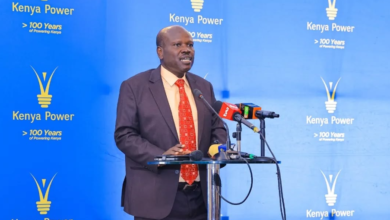
Kenya’s biggest bank by assets, KCB will have to inject more capital into the National Bank of Kenya if it is to turn around the mid-sized bank’s fortunes.
This even as KCB announced that it has injected five billion Kenya shillings in fresh capital into NBK.
On 2 September 2019, the Central Bank of Kenya announced that it had approved the acquisition of 100% shareholding of the National Bank of Kenya limited by KCB group plc.
KCB went on to propose to make the acquisition through a share swap of 10 ordinary shares of NBK for every one ordinary share of KCB.
NBK’s acquisition by KCB came at a time when NBK was facing tough economic times with its profitability having shrunk due to decreased revenue and increased bad loans.
According to a report by standard Investment Bank, NBK has been in breach of regulatory capital requirement since 2015 and was likely in breach of other non-capital related ratios.
NBK’s non-performing loan book as of March 2019 stood at 27 billion shillings and its non-performing loan ratio had grown to over 50%.
Now, Kenya Commercial Bank has announced it has injected 5 billion shillings into the national Bank of Kenya to enable it to comply with capital adequacy requirements.
According to Sarah Wanga, Head Of Research At AIB Capital, while the investment comes as a boost to NBK, KCB might have to make more investment into NBK in the near future.
As per the audited financial statements issued for the period ended 31 December 2018, NBK’s asset base was valued at approximately 115 billion Kenya shillings, with shareholders’ equity valued at about 7 billion Kenya shillings.
NBK had 1,499 staff members, 80 branches, 124 ATMs, 1,480 agents, an e-banking platform and a mobile banking platform.





